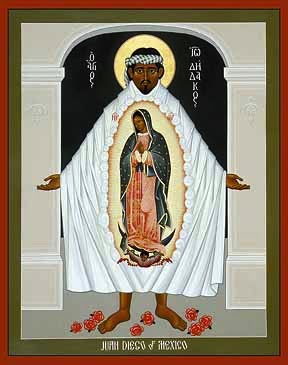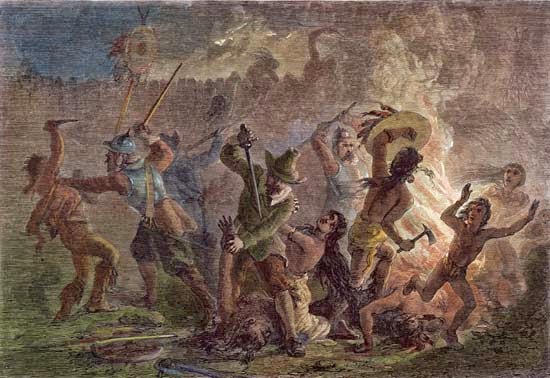-
Bendiciones al celebrar el mito divino de que el dios único de los hebreos eligió nacer hombre y vivir la gloria amarga-dulce de la mortalidad para encender la esperanza de un mundo regido por la justicia arraigada en el amor y la compasión. Es apto que el día de su nacer se fija en el solsticio invernal, el crecer de la luz.
Casi no es necesario notar que es oscuro el mundo, que por falta de documentos madres, padres son separados de sus hij@s y familias son destruidas, que muchos sufren hambre y desamparo para que los cuantos poderosos ricos vivan vidas de derroche. Y casi no se necesita notar que la iglesia establecida para llevar sus enseñanzas de él más veces que no se presta de fácil cómplice a las instituciones del abuso.
Pero sí hay que notar que ahora ocupa el trono de San Pedro un papa que tomando el nombre de un santo mendigo reclama a los banqueros en el templo y fuera. Se revive la esperanza de que despertemos a la luz. Así sea.
Se cuenta que
el fulgor de un lucero
y el cantar de ángeles
anunciaron el nacer
del dios hecho hombre,
del niño nacido
entre animales domésticos.
Sea lo que sea el cuento
de la trágica y gloriosa
trayectoria de su vida,
todo se reduce a esto:
------enseñó a amar.
----© Rafael Jesús González 2014

Blessings as we celebrate the divine myth that the only god of the Hebrews chose to be born a man and live the bitter-sweet glory of mortality to light the hope of a world ruled by justice rooted in love and compassion. It is fit that his day of birth be fixed at the Winter Solstice, the growing of the light.
It hardly needs remarking that the world is dark, that for lack of documents mothers, fathers are separated from their children and families are destroyed, that many go hungry and without shelter so that the few powerful rich may lead spendthrift lives. And it hardly needs remarking that the church established to carry his teachings more often than not lends itself easy accomplice to the institutions of abuse.
But it must be noted that on the throne of St. Peter there now sits a pope who, taking the name of a pauper saint, calls to account the money-changers in the temple and without. Hope is quickened that we may be waking to the light. May it be so.
-------------To This
It is told
that the brightness of a star
and the singing of angels
announced the birth
of the god made man,
the child born
among domestic animals.
Whatever is the story
of the tragic and glorious
trajectory of his life,
it all comes to this:
------he taught to love.
------© Rafael Jesús González 2014
-








































